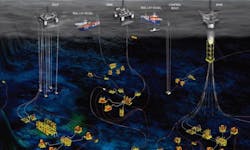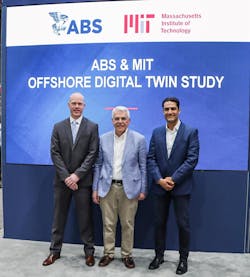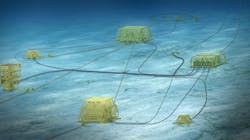OTC 2023: ABS, MIT join forces on offshore digital twins study
Offshore staff
HOUSTON — The offshore energy industry is the targeted beneficiary of a new study led by the Massachusetts Institute of Technology (MIT) and supported by ABS, offshore industry leaders and MathWorks to expand the use of artificial intelligence (AI) tools and machine learning methodologies to better predict riser motion.
With a focus on risers that connect subsea oil resources to surface assets, the study developed digital twins to better predict riser motion and enable offshore companies to optimize field sensor locations on their assets.
Guided by active learning, the Intelligent Towing Tank was used to conduct a series of experiments. Using an “explore-and-exploit” methodology, the algorithm-based system dramatically reduced the number of experiments required to explore and map the complex forces governing VIVs.
The uncertainty of the predicted riser VIV motion is quantified, and a procedure is developed to process multi-terabyte field datasets for digital twin use, using physics-informed neural networks and multi-fidelity methods to incorporate multiple models of different fidelity.
“Artificial intelligence methods have become an essential tool for design and operation of complex systems, and digital twins provide unprecedented capability to explore the parametric space," said Michael Triantafyllou, MIT professor of mechanical and ocean engineering.
For more information, visit ABS at OTC booth 2239.
05.02.2023


